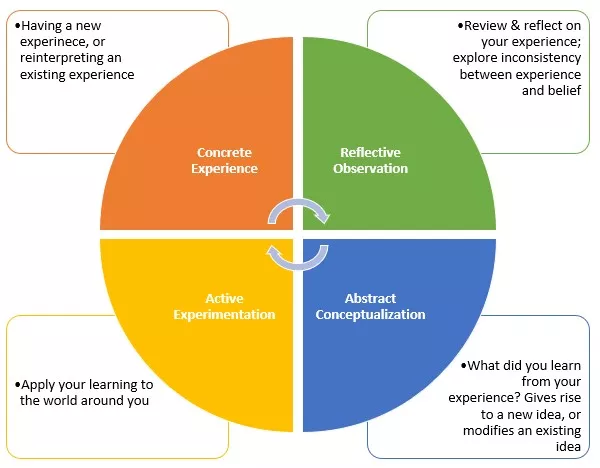MScSM Students complete one four-month full-time work term from May to August. Each student’s internship must relate to his or her individual focus in sustainability; as a result, our students participate in an extremely diverse range of industries and sectors, in many different types of roles. Sample organizations and job titles can be found below.
The successful acquisition of an internship or co-op depends on our students’ willingness to participate fully in the process. As a result, the MScSM Program does not guarantee a student a placement – however, the Placement & Employer Relations Manager works with each student individually to craft a search plan, create strong application documents, improve interview skills, and consider the implications of the internship on future career choices.
To achieve this, the Program:
- Creates Class Viewbooks to share online and with prospective employers to enhance the presence of available MScSM interns in the market
- Distributes postings to the cohort that are suitable internships, many of which are developed specifically by employers for the MScSM Program
- Shares open or public positions that would be suitable for the class
- Provides workshops, seminars, one-on-one advising and assorted resources to assist students in their searches
- Facilitates informational interviews and job interviews for students
- Connects students who are struggling with additional resources as required
Students are not restricted to internships dispersed by the Program; they may go to any role or organization that meets their interest, as long as the position is approved by the Program Office. This includes both local and international positions.
About the MScSM Internship
The Internship Course follows Kolb’s Model of Experiential Learning[1], a cyclical model that includes components of experience, reflection, thought and action.

[1] https://www.simplypsychology.org/learning-kolb.html
Past MScSM Internship / Co-Op employers include City of Mississauga, Credit Valley Conservation, and adidas. To see the full list, please visit Internship / Co-Op Employers
How the Internship Process Works
Students spend a considerable amount of time in the fall and winter semesters in preparation for their internship, including both group workshops on work-related topics, as well as frequent 1:1 meetings for career coaching and counselling with the Program’s Placement Manager. Time is set aside one afternoon per week for the Internship Course for Professional Development sessions/workshops. The approach here is intentional: by engaging students in the process at the outset, students learn the nuances to career development, reflection on their own career goals, and engagement in the process of exploring industries and career paths. This is formative, and ensures that post-graduation, students have the tools, confidence, and ability to proceed throughout their own career trajectories in an independent and meaningful way.
Students are expected to participate fully in the search for an internship. While the Program generates a substantial number of job postings, and disseminates a considerable number of publicly available postings, students are required to acquire their own internship. The Program’s Placement Manager, however, provides full-cycle support, including cover letter and resumé support, search process support, interview coaching and training and assistance with negotiation of offers and contracts.
The Internship Course (SSM 1110H) is pass/fail, and is comprised of:
- Successful completion of the work-term: 10-16 weeks full-time, including formal mid-term and final evaluations
- Participation in the Professional Development Sessions in the two academic terms leading up to the placement. This includes workshops and seminars on career-related topics, as well as guest lectures in our weekly Speaker Series.
- Creation of an Internship Poster for display at our fall Sustainability Leadership Series
Internship Samples & Statistics
Most MScSM students go to internship positions that were either created specifically for the MScSM Program through the job development activities of the Program Office, or for an individual MScSM acquired through the network. A smaller proportion go to positions that were restricted to MScSM and select additional graduate programs, and the remainder go to publicly vacant positions.
72% of students go to internships or co-ops that were designed specifically for the MScSM Program, or for a specific student within the cohort.
Geographically, most interns remain in the Greater Toronto Area, with a few moving to international locations and across Canada.

Students complete their co-op or internship in a wide range of industries and sectors. Most go to the corporate world (62%), with 12% going to all levels of Government, 24% to non-profit and NGOs, and 2% to start-ups.
Sample internships by industry:
Students complete their internships and co-ops across every industry and sector. Sustainability is everywhere! Common areas include:
|
Industry Area |
% Internships |
|
Consulting |
19.8% |
|
Business Services |
9.0% |
|
Banking & Financial Services |
7.9% |
|
Government |
7.9% |
|
Energy & Utilities |
6.8% |
|
Non Profit / NGO |
5.8% |
|
Engineering & Environmental Services |
5.0% |
|
Scientific Research & Development |
5.0% |
|
Computer, Information & Internet Services |
4.7% |
|
Education |
4.3% |
|
Manufacturing |
4.0% |
|
Real Estate & Property Management |
3.2% |
|
Retail |
2.9% |
|
Agriculture, Forestry & Fishery |
2.9% |
|
Mining, Oil & Gas |
1.8% |
|
Printing, Publishing |
1.8% |
|
Travel, Hospitality & Food Services |
1.4% |
|
Health Services |
1.1% |
|
Logistics & Transportation |
1.1% |
|
Supply Chain, Logistics & transportation |
1.1% |
|
Biotechnology & Pharmaceuticals |
0.7% |
|
Architectural, Landscape & Interior Design Services |
0.4% |
|
Arts, Entertainment & Recreation |
0.4% |
|
Communications, Media & Public Relations |
0.4% |
|
Community & Social Services |
0.4% |
|
Construction |
0.4% |
Sample Job Titles for Interns and Co-Ops:
Across all the years of the MScSM Program, there are 165 different job titles! Students can intern in a tremendous range of roles. Here are some examples:
- Carbon Market Analyst
- Climate Resilience and Sustainability Intern
- Environmental Coordinator or Outreach Student
- ESG Communications & Strategy Intern
- Operational Sustainability Intern
- Policy Analyst
- Program Assistant
- Project Lead
- Research Analyst or Intern
- Strategic Planning or Partnerships Intern
- Sustainability Analyst
- Sustainability Associate
- Sustainability Coordinator
- Sustainability Intern
- Waste Management Intern


